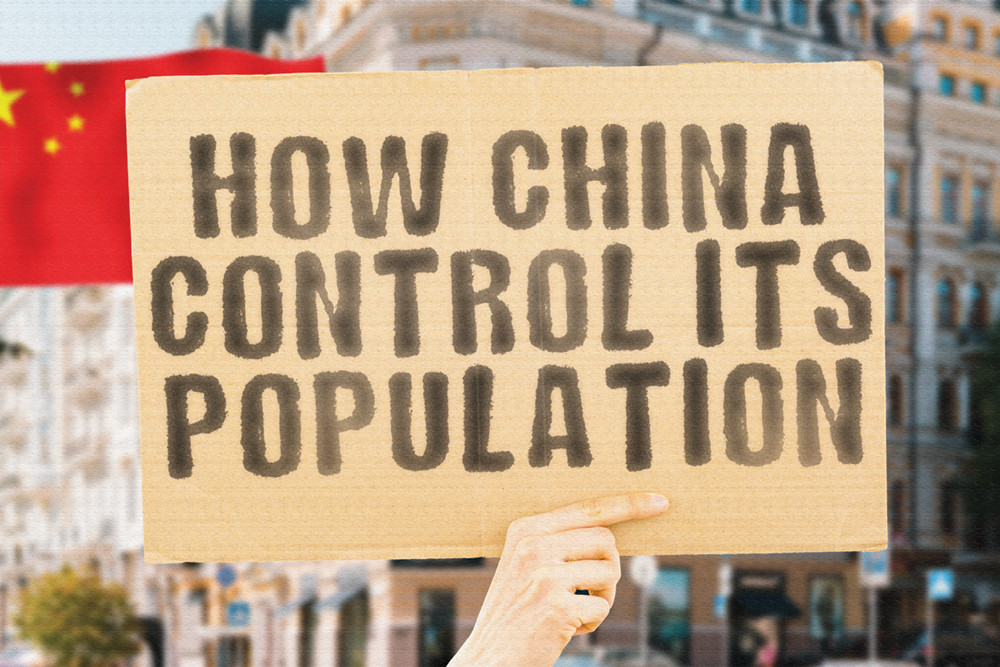
The 20th century was full of attempts to centrally plan population. Scientists like Paul Ehrlich and businessmen like Hugh Moore spent their lives putting direct pressure on politicians and citizens into addressing the looming spectre of ‘overpopulation’.
Population doomer language was often dramatic and often included predictions of mass death within just decades.
The predictions never got anywhere close to happening. Humanity never ran out of food – or any other resources for that matter – before the turn of the century.
But population doomers did have an impact. Governments like the United States through USAID and organisations like the United Nations Fund for Population activities (UNFPA) focused extensive organisational resources on curbing the world population.
This push manifested in the first UN Population Award given to leaders in China and India in 1983.
Both countries at the time had utilised coercive tactics to slow population growth, but one has stuck in the zeitgeist as the primary example of population planning – China and its infamous one child policy.
A little over a week ago on October 30, CCP leader Xi Jinping implicitly made a monumental admission – China’s population policy was a big mistake.
2022 marked the first year in over six decades where China recorded a population drop. This isn’t just a blip. Unless something changes, China’s population will fall increasingly quickly for the foreseeable future.
To combat this, Xi says, “We must actively cultivate a new culture of marriage and childbearing.” Although CCP leaders would never admit the population policies of the past were a mistake, for fear of admitting a failure of late dictator Mao Zedong, this course reversal comes as close to an admission as anyone is likely to get.
The key takeaway in this moment, though, is not just the failure of Mao and the one child policy. The failure rests in the very idea of centrally planning a population and all central planners who promoted it throughout the 20th century. Let’s look at why it failed.
Humanity + Creativity > Tragedy
The call for central planning of population ultimately stems from a single intellectual exercise which goes something like this. Imagine you live near a pond which no one owns. Each person who lives on the pond quickly realises that each time a neighbour fishes, the neighbour receives the whole benefit of the fish but everyone who lives near the pond experiences the loss of having one less fish.
This situation incentivises each person to fish more often because it means each person claims more of the fish. This recognition leads to a vicious cycle where everyone rushes to fish and, in doing so, catches all the fish in the pond so it remains empty forever.
This scenario is known as the tragedy of the commons. Ecologist Garrett Hardin was the first person to formalise this concern and he did so in the context of the so-called population problem. Hardin’s theory was that if there were common resources, people would overproduce children because the children received the full benefit of common resources without the parents bearing the cost.
Justifications for central planning of population vary over time with respect to the common resource. In the 1970s, many were concerned food (not really a common resource in any formal sense) would be overconsumed by a growing population. Today, academics write papers about population overconsuming our common resource of ‘climate’.
These justifications have turned out to be wrong every time. Economists Julian Simon and Elinor Ostrom explained why throughout their careers. Simon highlighted how population growth increased the number of creative people who would respond to resource scarcity with clever solutions. During his life he debated Hardin on this point (‘Is the Era of Limits Running Out?’ Public Opinion, 5, February/March, 1982, pp. 48-57) and won a bet against Paul Ehrlich demonstrating resources were becoming more abundant.
Ostrom tackled the problem another way. She highlighted how groups of people frequently came up with clever cultural and institutional rules which protected the commons from over-exploitation, and she won the Nobel Prize in economics for doing so.
The overall message of both scholars is the same – people are not trapped in the tragedy of the commons. They are able to think of intelligent solutions which ecologists like Ehrlich and Hardin were apparently unable to conceive of. This inability to recognise human creativity as the ultimate fix to the problems associated with a higher population is the first reason for the failure of central population planning.
Humans Are Not Fruit Flies
The second reason for the failure of central population planning is also related to the importance of human creativity. Unlike the assumptions that underlie many models of animal population growth, people are able to consider and weigh the future costs and benefits of having children for themselves.
This problem with population planners has long been noted. In a 1932 paper titled ‘Population and Culture’ by Lyman Bryson with commentary from economist Frank Fetter, Bryson dismantles the ‘biological approach’ whereby humans are treated the same as animals. Defenders of this approach argue it would work if you ignore the fact that humans respond to changing conditions. Bryson responds, “and is that not another way of stating that data derived from the laboratory, from controlled experiments with fruit flies, would have some meaning in demographic interpretations if it were not for the obstinate tendency of men to be men and not fruit flies?”
Fetter’s commentary reinforces this point: “...we have the spectacle of the biologist, badly untrained in the elements of thought in the social field, endeavouring to reduce the complex problem of human population to the size and content of a bottle of maggots in his laboratory.”
In short, humans are not fruit flies. By and large they make intelligent decisions about important questions like having children. That doesn’t mean humans are without any mistakes, but it also means we’re not simply servants of our impulses.
In many developing countries, children serve an important function of providing social security for parents. Couple this with cultural male preference locking many women out of the job market, and it becomes easy to see how very large families are a rational response of poor people based on their situation.
Rich countries often decouple social security from parents and their direct descendants. Instead, the older generation as a whole is theoretically supported by the work of the younger generation as a whole.
Notice, though, that this decoupling of parents and children means a decoupling of incentives. When your children directly provide your social security, you have an incentive to have children. When someone else’s children can provide your social security, you have less incentive to have them yourself.
That isn’t to say the decoupled system cannot work. The country using it simply needs to be wealthy enough to deal with this issue. The problem is, central population planning ignored this reality entirely. In forcing an artificial one child policy, China cut down the number of people in future generations by millions.
Now China faces the issue of a relatively small workforce compared to a large older generation. Had the country relied on the decision-making of individuals, it seems likely the population pyramid in China would be much less problematic than it is.
The Order of Many Plans
Central population planning’s failure in China is a microcosm of central population planning’s tendency to always fail. The attitude of the central planner is captured well by a quote from Mao Zedong who said,
“(Re)production needs to be planned. In my view, humankind is completely incapable of managing itself. It has plans for production in factories, for producing cloth, tables and chairs, and steel, but there is no plan for producing humans. This is anarchism – no governing, no organisation, and no rules.”
Ironically, this quote from 1957 comes just eight years after Mao proclaimed population growth would always be a boon for China.
The fundamental mistake made here is the claim that without central planning there is no governing, organisation, or rules. This simply is not true. Formal and informal institutional rules outside of the state govern most of our daily actions and interactions. The absence of central planning is not the absence of a plan. Rather it’s the presence of millions of plans created by intelligent individuals who know more about their situations than a central planner ever could.
To quote the economist Ludwig von Mises in his book Socialism: “What those calling themselves planners advocate is not the substitution of planned action for letting things go. It is the substitution of the planner’s own plan for the plans of his fellow-men. The planner is a potential dictator who wants to deprive all other people of the power to plan and act according to their own plans. He aims at one thing only: the exclusive absolute pre-eminence of his own plan”
Perhaps supporting the plans of the many is a kind of anarchism, but it is anything but chaotic.
Contrast this with the chaos of central population planning. In the last 80 years China has swerved from pro-natal sentiment, to anti-natal sentiment, to anti-natal policy, to pro-natal sentiment, and likely to pro-natal policy soon. With plans like these, who needs chaos?
The best hope for humanity on the question of population growth is that people look back on the history of China’s population policies and realise that this wasn’t just a case of bad luck. Rather, the demographic instability is a predictable result of what happens when government meddles in the plans of citizens.
Source: fee.org


